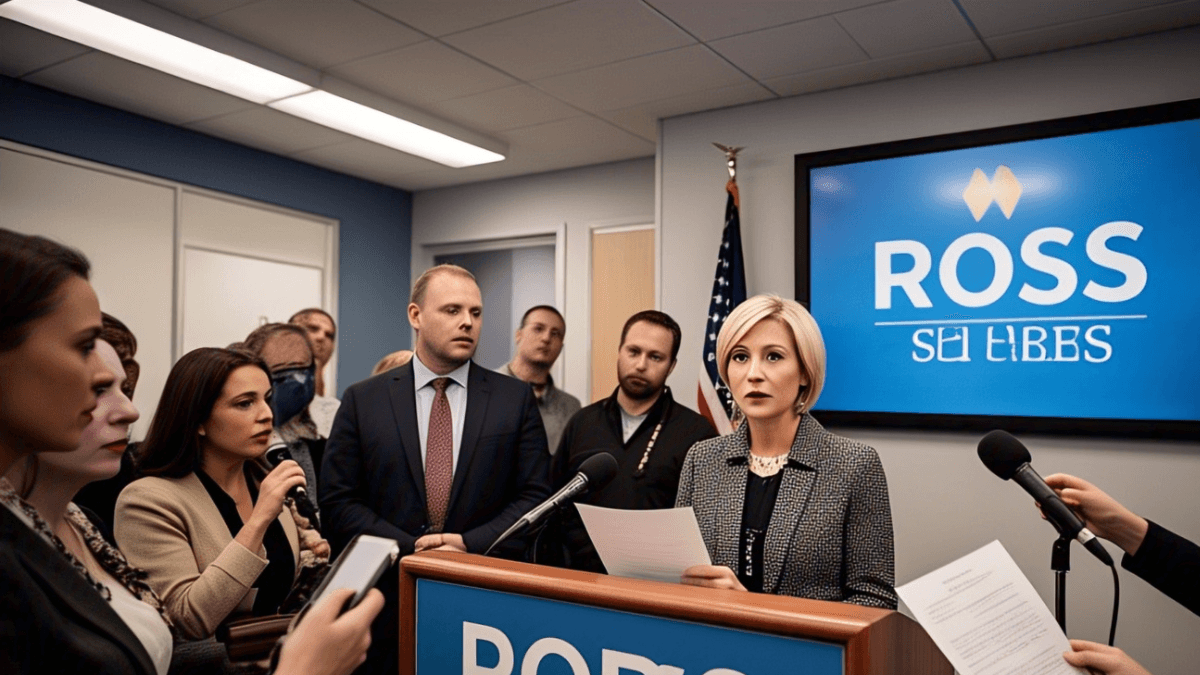Ross Stores has withdrawn its 2025 forecasts due to escalating U.S.-China tariffs, affecting profitability and consumer prices. Discover the implications for American shoppers and investors.
Table of Contents
- Introduction
- Ross Stores’ Financial Performance in Q1 2025
- Impact of Tariffs on Ross Stores
- Comparative Analysis with Other Retailers
- Consumer Behavior and Economic Indicators
- Investor Implications
- FAQs
- Conclusion
Introduction
Ross Stores Inc., a leading off-price retailer in the U.S., has recently withdrawn its fiscal 2025 sales and profit forecasts, citing uncertainties stemming from escalating tariffs under President Donald Trump’s trade policies. This move has raised concerns among investors and consumers alike, as the retail sector grapples with the implications of international trade tensions.(Reuters)
Ross Stores’ Financial Performance in Q1 2025
Despite the challenging economic landscape, Ross Stores reported a net income of $479 million for the first quarter of 2025, with earnings per share (EPS) of $1.47, slightly above the previous year’s $1.46. Sales for the quarter reached $5.0 billion, with comparable store sales remaining flat compared to the prior year.(Business Wire)
However, the company anticipates a second-quarter EPS range of $1.40 to $1.55, which includes an estimated $0.11 to $0.16 impact from tariffs. This projection falls short of analysts’ expectations of $1.65 per share, reflecting the financial strain imposed by increased import costs.(Reuters)
Impact of Tariffs on Ross Stores
Ross Stores sources over half of its merchandise from China, making it particularly vulnerable to the U.S.-China trade war. The imposition of tariffs has led to increased costs, prompting the company to reassess its financial outlook. (Reuters, Business Insider)
CEO Jim Conroy expressed concerns over the unpredictable nature of tariff announcements and their potential to pressure profitability if elevated levels persist. The company is exploring strategies to mitigate these impacts, including supply chain adjustments and cost management initiatives.(Yahoo Finance)
Comparative Analysis with Other Retailers
Ross Stores is not alone in facing the repercussions of tariff pressures. Target recently revised its annual sales and earnings forecasts downward, attributing the change to weakened consumer confidence and reduced discretionary spending amid ongoing tariff challenges. (Reuters)
Similarly, Ralph Lauren has forecasted modest revenue growth for fiscal 2026, citing tariffs, inflation, and weak consumer sentiment as contributing factors. The company is considering further price hikes to counter evolving tariffs. (Reuters)
Conversely, TJX Companies, the parent company of TJ Maxx, has maintained its annual forecasts, confident in its strategies to mitigate the tariffs’ impact. (Reuters)
Consumer Behavior and Economic Indicators
The broader economic environment has also influenced consumer behavior. U.S. business activity improved in May; however, tariffs have been boosting prices for businesses and consumers, leading to concerns about inflation. (Tiger Brokers, Reuters)
Discount retailers like Ross Stores have traditionally benefited during economic downturns as consumers seek value. However, the current scenario presents a paradox where increased operational costs due to tariffs may limit the ability to offer low prices, potentially affecting consumer foot traffic.
Investor Implications
The withdrawal of annual forecasts by Ross Stores has led to an 8% decline in its shares during after-hours trading. Investors are now navigating a landscape marked by uncertainty, with tariff policies influencing corporate profitability and market dynamics.(Reuters, Business Insider)
Companies across various sectors, including Canada Goose, General Motors, and Procter & Gamble, have also adjusted or withdrawn their financial guidance amid similar concerns. This trend underscores the widespread impact of trade policies on corporate strategies and investor confidence.(Business Insider)
FAQs
Q1: Why did Ross Stores withdraw its annual forecasts?
A: Ross Stores cited uncertainties related to escalating tariffs under U.S. trade policies, which have increased import costs and impacted profitability, leading to the withdrawal of its fiscal 2025 sales and profit forecasts.(U.S. News Money)
Q2: How have tariffs specifically affected Ross Stores?
A: With over half of its merchandise sourced from China, Ross Stores faces increased costs due to tariffs, which have pressured its profit margins and led to a reevaluation of its financial outlook.(Reuters)
Q3: Are other retailers experiencing similar challenges?
A: Yes, retailers like Target and Ralph Lauren have also adjusted their forecasts due to tariff pressures, while TJX Companies has maintained its outlook, confident in its mitigation strategies.(Reuters)
Q4: What does this mean for consumers?
A: Consumers may experience higher prices as retailers adjust to increased import costs. Additionally, economic uncertainty may influence consumer spending habits, particularly in discretionary categories.
Q5: How should investors respond to these developments?
A: Investors should monitor the evolving trade policies and their impact on the retail sector, considering diversification and staying informed about companies’ strategies to navigate these challenges.
Conclusion
The withdrawal of annual forecasts by Ross Stores highlights the significant impact of tariff pressures on the retail sector. As companies navigate these challenges, consumers and investors alike must stay informed about the evolving economic landscape and its implications for pricing, profitability, and market dynamics.

One comment